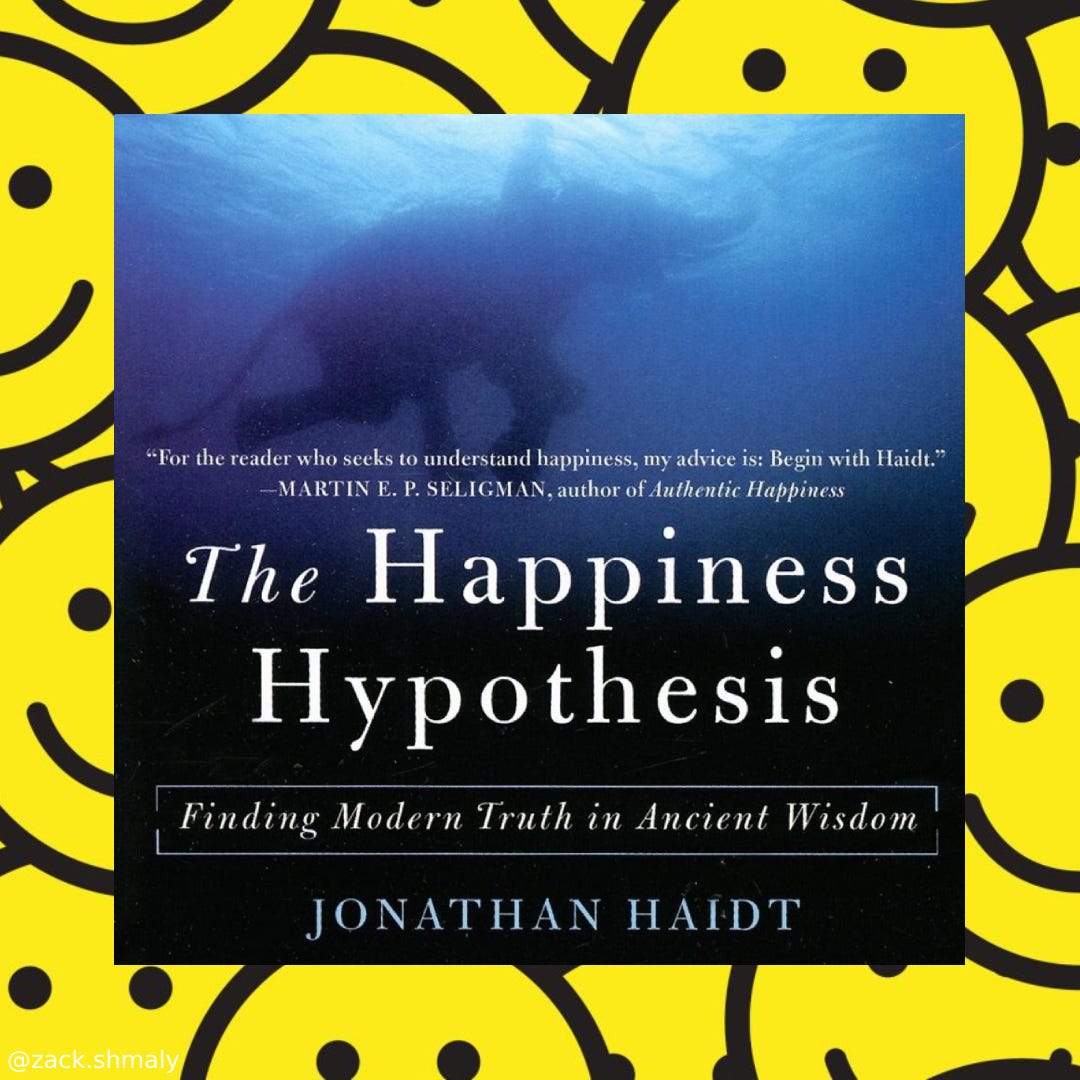The Happiness Hypothesis
Haidt, J. (2006). The happiness hypothesis: finding modern truth in ancient wisdom. New York: Basic Books.
What makes us happy? Does happiness come from within, outside, or inbetween? Are Plato, Buddha, Jesus, or Kant right about the path to happiness? @Jonathan.haidt examines these grand philosophical ideas of happiness in light of modern psychological and sociological research, and explores the relationship between virtue, meaning, fulfilment, and happiness. The final formula is happiness (h) = set point (s) + condition (c) + activities (v).
From my political theory perspective, the book provides invaluable interdisciplinary insight into the origins of modern values such as reciprocity, vengeance, sociability, and divinity. These concepts correspond with equality, justice, order, and authority. Thus, understanding what makes someone happy is the key to understanding their political views.
Fav quote: „We were shaped by individual selection to be selfish creatures who struggle for resources, pleasure, and prestige, and we were shaped by group selection to be hive creatures who long to lose ourselves in something larger. We are social creatures who need love and attachments, and we are industrious creatures with needs for effectance, able to enter a state of vital engagement with our work. We are the rider and we are the elephant, and our mental health depends on the two working together, each drawing on the others' strengths“ (p. 238).




